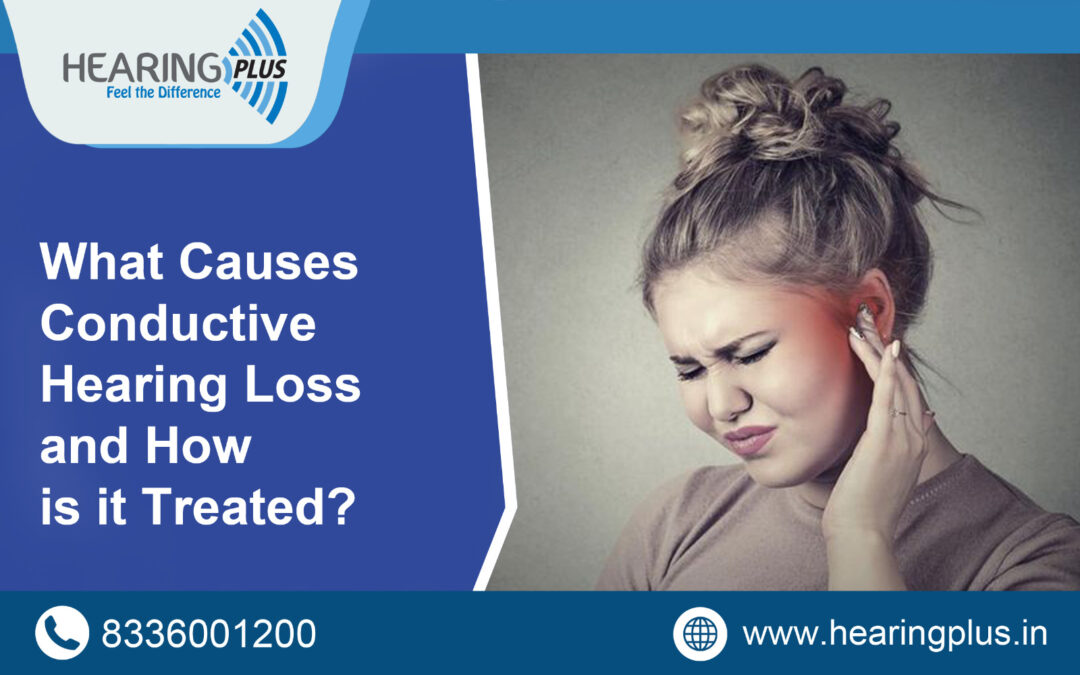One’s hearing ability depends on the proper functioning of the ear’s three main parts: the outer ear, middle ear and inner ear. If you face any trouble in the outer or middle ear, it can lead to conductive hearing loss, affecting the ability to hear soft or low-volume sounds. Expert audiologists from the best hearing aids clinic discuss everything in detail about conductive hearing loss, including its symptoms, causes and treatment options. Read on to know more:
What is Conductive Hearing Loss?
Conductive hearing loss occurs when a blockage or damage to the outer or middle ear prevents sound waves from reaching the inner ear. This causes trouble in hearing soft sounds and affects auditory perception.
Symptoms of Conductive Hearing Loss
People with Conductive Hearing Loss often struggle to hear sounds at low volumes. They may frequently increase the volume of their devices such as headphones or speakers. Other symptoms include sudden hearing loss, ear pain, dizziness or fluid drainage from the ear.
Causes of Conductive Hearing Loss
Multiple factors contribute to conductive hearing loss. Issues in the outer ear include foreign objects, earwax buildup, infections, fluid accumulation or structural abnormalities.
Diagnosis of Conductive Hearing Loss:
An Ear, Nose and Throat (ENT) specialist or an expert audiologist usually diagnoses conductive hearing loss. They conduct a thorough examination, including a hearing test called an audiogram. Additional tests like tympanometry, acoustic reflex tests and imaging scans are necessary to determine the exact cause of conductive hearing loss.
Treatment Options
- Removal of earwax or foreign objects which are blocking the ear canal.
- Administration of antibiotics to clear up ear infections.
- Utilization of hearing aids to amplify sounds and improve hearing.
- Surgical procedures to repair damage to the ear structures or remove growths.
- Consideration of implantable hearing devices for long-term management.
Risk Factors
Some factors increase the risk of developing conductive hearing loss such as frequent ear infections, improper ear cleaning practices and exposure to moisture or outdoor activities.
A Positive Outlook
The prognosis for conductive hearing loss depends on an individual’s medical history, cause of conductive hearing and its severity. Temporary issues are often resolved with appropriate treatment, while chronic conditions may require long-term management with assistive listening devices such as FM Systems or wireless headphones. Audiologists effectively manage conductive hearing loss through early and accurate diagnosis to improve the quality of life for individuals suffering from this condition.
Conclusion
Conductive hearing loss impacts daily life but it’s often manageable with proper treatment. Individuals must proactively address conductive hearing loss and regain auditory function. They must understand its causes, symptoms and available treatments and seek prompt medical help from the audiologists of the best hearing aids clinic for effective management and auditory well-being.

